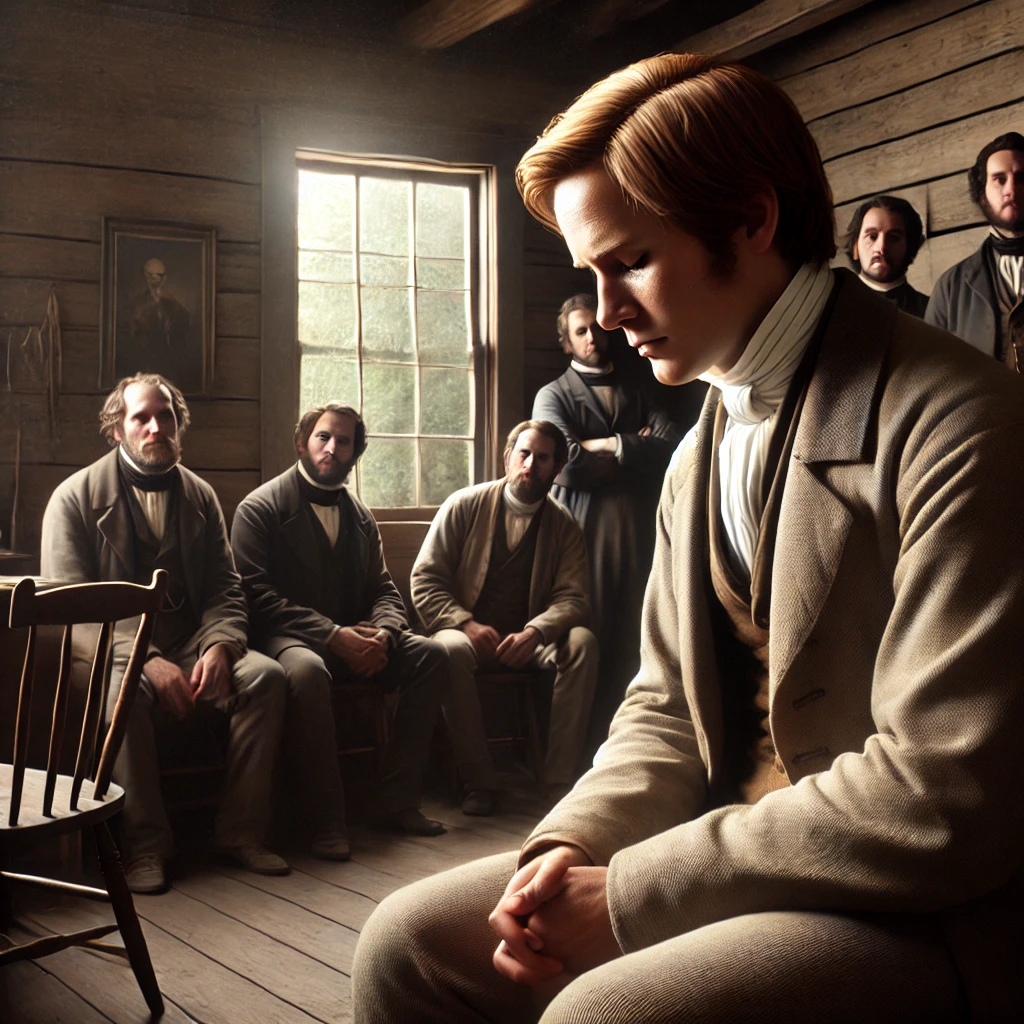We never suffered ourselves to go into any important measure without asking Brother Joseph to inquire of the Lord in relation to it. Such was our confidence in him as a Prophet that when he said, “Thus saith the Lord,” we were confident it would be as he said; and the more we tried it, the more confidence we had, for we never found his word to fail in a single instance.
A short time before we were to go to Daviess county for trial, word came to us that either General Atchison or Doniphan would raise a military force and go with us to protect us from the wrath of that people. The matter was discussed by the brethren (except Brother Joseph), and they naturally enough concluded it would be best. Although I had nothing to say, I concurred with them in my feelings.
Brother Hyrum asked Brother Joseph what he thought of it. Brother Joseph hung his head a few moments and seemed in a deep study, then raised up and said, “Brother Hyrum, it will not do; we must trust in the Lord; if we take a guard with us we shall be destroyed.”
This was very unexpected to us, but Brother Hyrum remarked, “If you say it in the name of the Lord, we will rely on it.” Said Brother Joseph, “In the name of the Lord, if we take a guard with us, we will be destroyed; but if we put our trust in the Lord, we shall be safe, and no harm shall befall us, and we shall be better treated than we have ever been since we have been prisoners.”
This settled the question, and all seemed satisfied, and it was decided that we should have no extra guard, only such as they chose for our safe keeping. When we arrived at the place where the court was held, I began to think he was mistaken for once, for the people rushed upon us en masse, crying, “Kill them: — — them, kill them.” I could see no chance for escape, unless we could fight our way through, and we had nothing to do it with. At this, Brother Joseph, at whom all seemed to rush, rose up and said, “We are in your hands; if we are guilty, we refuse not to be punished by the law.” Hearing these words, two of the most bitter mobocrats in the country – one by the name of William Peniston and the other Kinney, or McKinney, I do not remember which – got up on benches and began to speak to the people, saying, “Yes, gentlemen, these men are in our hands; let us not use violence, but let the law have its course; the law will condemn them, and they will be punished by it. We do not want the disgrace of taking the law into our own hands.”
In a very few minutes they were quieted, and they seemed now as friendly as they had a few minutes before been enraged. … This took place in the court-room (a small log cabin about twelve feet square), during the adjournment of the court; and from that time until we got away, they could not put a guard over us who would not become so friendly that they dared not trust them, and the guard was very frequently changed. We were seated at the first table with the judge, lawyers, etc., and had the best the country afforded, with feather beds to sleep on – a privilege we had not before enjoyed in all our imprisonment.
Alexander McRae, History of the Church, III, pp. 258-259.

